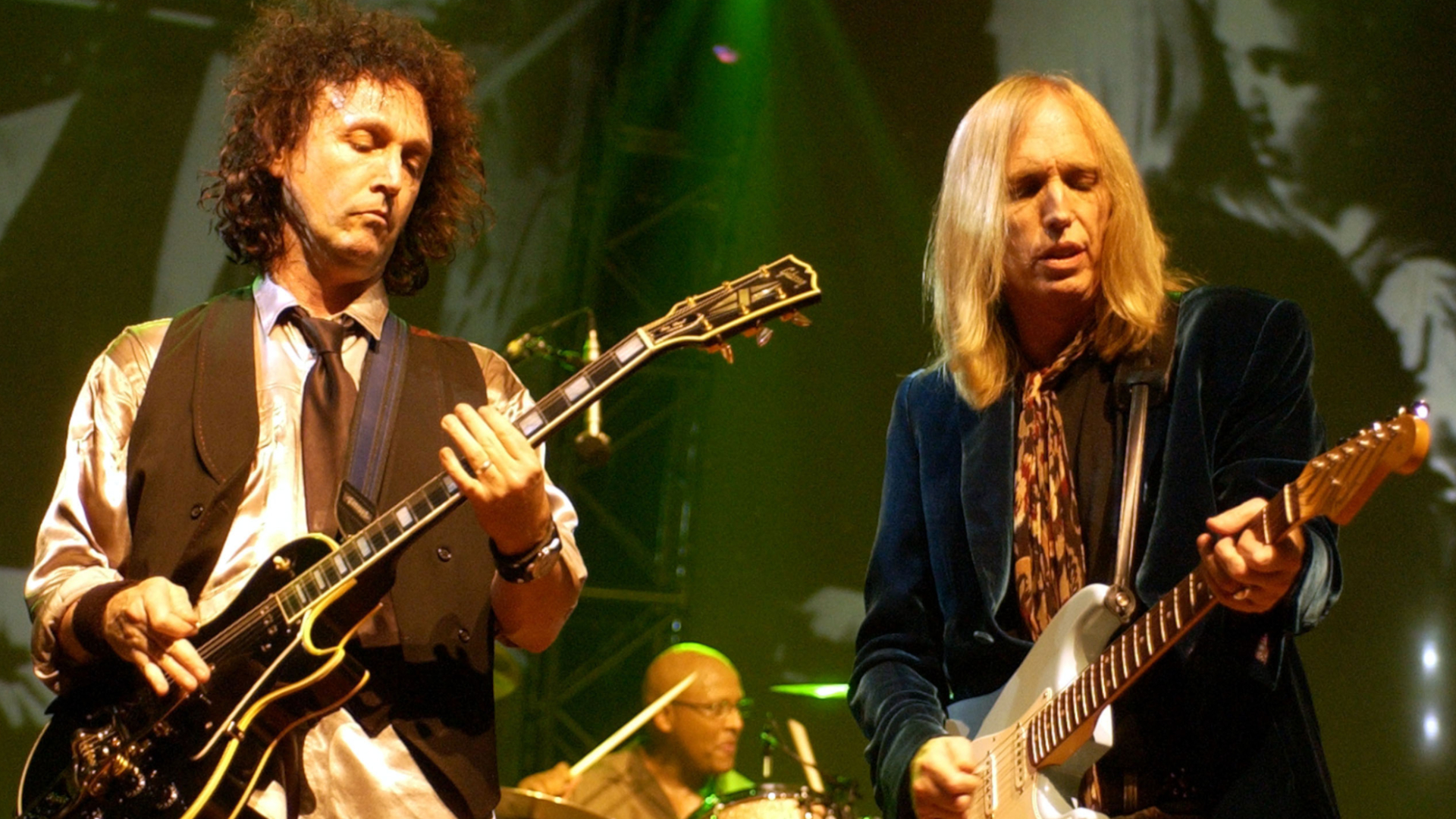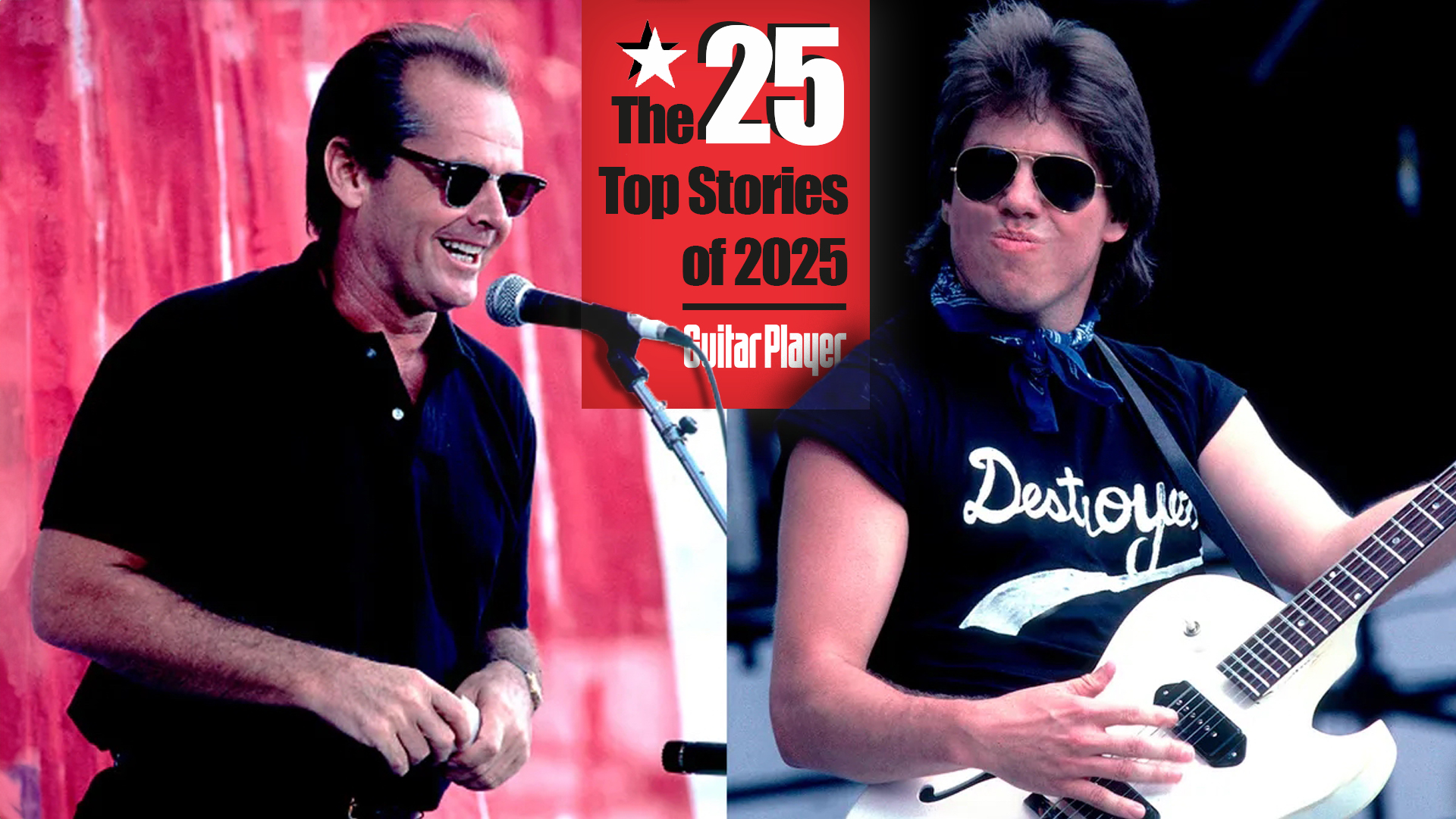“Rhythm playing is a lost art.” Tom Petty shares his greatest advice on rhythm guitar playing in a long-lost 1997 interview
The guitarist, who died on October 2, 2017, also gave his insights on Telecasters and Rickenbackers and the art of songwriting

Few guitarists had Tom Petty’s knack for songwriting, rhythm playing and how to put together not only a hit track but also an ace band, as he did with the Heartbreakers. Petty’s untimely death on October 2, 2017, silenced his talent and cut short the musical output that might have come from one of rock’s true soul-touching guitar-playing singer-songwriters.
Some 20 years before then, Guitar Player’s technical editor Art Thompson was invited to the home of Heartbreakers guitarist Mike Campbell for a pre-release listen to Echo, Tom Petty & the Heartbreakers’ 1999 album. It was there that Thompson had a rare opportunity to speak with Petty on a range of topics, from songwriting and rhythm playing to the best uses of Telecasters and Rickenbackers, as represented in these excerpts.
Is spontaneity key to the Heartbreakers' sound?
It's the band's nature, I'm afraid. We tend to play best early on, when we're discovering the song. It's actually a little frustrating that once the band learns a song, it doesn't get any better, just more studied.
Your main Tele is a custom instrument, right?
Yeah, I got it in '81 at Norman's Rare Guitars. Norm said, "Take it home and tell me what you think." I haven't stopped playing it since. A master craftsman named Toru built it [Toru Nittono of L.A. Guitar Works in Reseda, California]. I don't know whether he used old components or what, because this guitar looks like an old Tele-same pickups, same tailpiece.
So you prefer it to a vintage Tele?
All the latest guitar news, interviews, lessons, reviews, deals and more, direct to your inbox!
I've had people bring 20 vintage Telecasters to rehearsals, and I'd play them all trying to find one that matches this one. The closest I got was an old Esquire, which I bought for a spare. But if I ever lost my main Tele, I'd die — it's so good. Toru even tried to make me another one, but it didn't sound nearly as good. Now it adorns the wall of some Hard Rock Cafe!
How do you decide whether to play your Tele or Rickenbacker on a particular song?
The Telecaster is versatile — I can play lead on it or turn it down and play jangly rhythms. The Rickenbacker is rich and acoustic-sounding. It's great for rhythm, which is mostly what I do. Rhythm playing is a lost art these days-there aren't a lot of people who do it seriously anymore. But it's really important to our band that I play the rhythm, because the music sounds different if I don't.
"It's really important to our band that I play the rhythm, because the music sounds different if I don't."
—Tom Petty
What's the secret to playing good rhythm guitar?
I've put a lot of time into learning not to speed up or slow down, and being real nimble with the part. We often cut with both the vocal and guitar mics on, so if you screw up either part, you've lost them both. You've got to be confident that you're going to be able to go through a song, and sing in pitch and play in time. If you get good at rhythm, you can really make the band jump.
Which players influenced your rhythm style?
When I was coming up, I tried to emulate great rhythm guitarists like John Lennon, Mike Pender of the Searchers, and Keith Richards. The rhythm guitarists in '50s and '60s country music were amazing. And just listen to Elvis's stuff from the Sun Records period! His guitar was very loud in the mix, because it was bleeding into the vocal mic. Scotty Moore is great, but Elvis really carries those records.

Is songwriting easy for you?
Yeah, but it was hard to get good at it. It took the longest time to understand that just because I wrote a song, that didn't mean it was good. When I first came out to Hollywood in '74, I'd probably written 60 or 70 songs, but our producer [Shelter Records owner] Denny Cordell really brought home to me that only a small percentage of what I had was good enough to record.
Do you ever worry about running out of ideas for songs?
I always find more in the songs when I look back at them than I knew when I was writing them, so it doesn't pay to worry about it much. I have to come up with about 14 to 20 songs a year. It's what I do. Fortunately, there's always something in my head.
What's hardest about writing a song?
Getting what you feel across and then having other people grab that feeling. I've never been one to say, “I'm going to bear my soul on this one,” but I think you eventually do. My rule is to let the music dictate the lyric — don't try to hammer two things together that don't like each other. There have been times when I wrote a lyric in advance, and it took forever to find music that felt right.

Mike Campbell has fond recollections of his time with Petty, as he told Guitar Player in an interview with contributing writer Gary Graff that appeared in the September 2024 issue. Campbell — whose new group, the Dirty Knobs, recently released their third album, Vagabonds, Virgins and Misfits — talked with us about Petty’s influence on him as a songwriter and as a bandleader after years of playing support roles.
Said Campbell, “I always figured before the Heartbreakers came to an end, if they ever did — and I didn’t think it would end the way it did — that I would do my own band, just ’cause I gotta play and I love to play to people and to write songs. And I want to be good at it.
I want to get better at it.
"With Tom I had one of the best teachers in the world. So I’ve learned a lot about a lot of things: fronting a band, writing..."
—Mike Campbell
“And with Tom I had one of the best teachers in the world. So I’ve learned a lot about a lot of things: fronting a band, writing… I like the path we’re on. I have a lot of fun. I get to keep playing. And what more can a musician want?”
And as Campbell tells us, finding that new path wasn’t easy.
“You always have to have a dream. My other dream ran its course, and I’m very proud of it and I’ve got to carry on.”
Christopher Scapelliti is editor-in-chief of GuitarPlayer.com and the former editor of Guitar Player, the world’s longest-running guitar magazine, founded in 1967. In his extensive career, he has authored in-depth interviews with such guitarists as Pete Townshend, Slash, Billy Corgan, Jack White, Elvis Costello and Todd Rundgren, and audio professionals including Beatles engineers Geoff Emerick and Ken Scott. He is the co-author of Guitar Aficionado: The Collections: The Most Famous, Rare, and Valuable Guitars in the World, a founding editor of Guitar Aficionado magazine, and a former editor with Guitar World, Guitar for the Practicing Musician and Maximum Guitar. Apart from guitars, he maintains a collection of more than 30 vintage analog synthesizers.
- Gary Graff
- Art ThompsonSenior Editor
